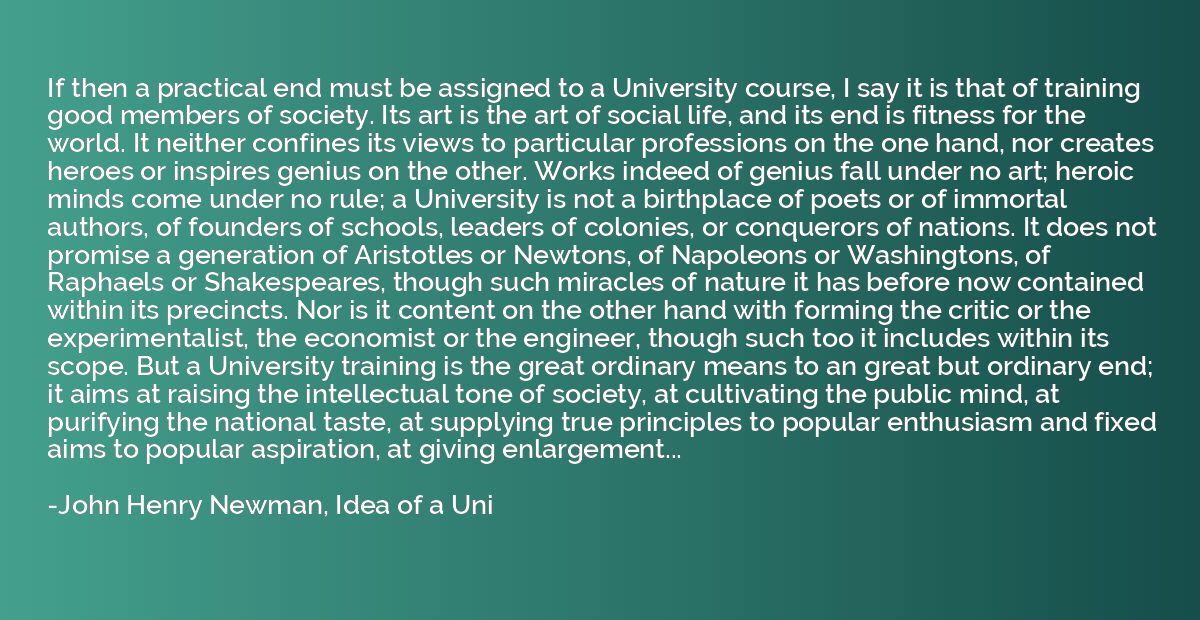John Henry Newman, Idea of a Uni Quotes
A collection of quotes by John Henry Newman, Idea of a Uni.
John Henry Newman was a prominent English theologian, poet, and cardinal in the 19th century. Born on February 21, 1801, in London, he was the eldest son of a banker. Newman attended Oxford University, where he became a leading figure in the Oxford Movement, a group of Anglicans aiming to revive Catholic doctrine within the Anglican Church.
In 1833, Newman was ordained as an Anglican priest and soon gained fame for his eloquent sermons. However, his views gradually shifted towards Catholicism, and after a period of intense personal reflection and study, he converted to Roman Catholicism in 1845. This decision caused a major uproar within Anglicanism.
Newman subsequently dedicated himself to promoting Catholic education and scholarship. One of his most significant works was "The Idea of a University," published in 1852. In this book, Newman argued that education should focus on the development of the whole person, integrating academic, intellectual, and spiritual growth.
Due to his exceptional intellect and influence, Newman was appointed as the first rector of the Catholic University of Ireland (now University College Dublin) in 1854. Later in his life, he was elevated to the rank of cardinal by Pope Leo XIII in 1879.
John Henry Newman passed away on August 11, 1890, leaving behind a profound impact on theological and educational thought. He was beatified by Pope Benedict XVI in 2010 and canonized as a saint by Pope Francis in 2019, recognizing his significant contributions to the Catholic Church and his unwavering commitment to intellectual inquiry and education.



